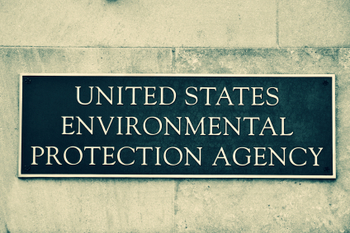
Republican Senators focus on the EPA’s openness.
Last week’s Republican boycott of a key committee vote on Gina McCarthy’s nomination as Environmental Protection Agency (EPA) Administrator captured the attention of headline–writers and pundits across the country. Yet, little media coverage actually focused on the issues discussed at the hearing or McCarthy’s answers to the Senators’ questions.
In their statements, Democratic senators praised McCarthy for her bipartisan work at the state level. They also voiced appreciation for her ability to work with industry leaders and her history of bringing together diverse and opposing stakeholders. The Democrats also applauded her pragmatic methods and dedication to common sense strategies.
However, McCarthy received a much different reaction from Republican senators, who recently sent McCarthy a letter outlining their concerns over the EPA’s lack of transparency. The Republicans stressed their disapproval of what they characterized as “backroom ‘sue and settle’ deals”—where an interest group sues the EPA and, at settlement, requests stricter rules or new regulations. In response to these charges, McCarthy stated that these agreements are made by the EPA and the U.S. Department of Justice (DOJ), with full notice given to the public. Moreover, McCarthy pointed out that proposed settlement agreements under the Clean Air Act (CAA) are published in the Federal Register and open for public comment.
Republican senators also addressed the EPA’s procedure for responding to Freedom of Information Act (FOIA) requests and various congressional requests for information. In her written response, McCarthy emphasized that she would “strive towards excellence” and invited the senators to work with her and the EPA in developing strong policies that are consistent with the law.
In response to Republicans’ criticisms that the EPA used private email accounts to conduct official business, McCarthy stated that an independent company is currently auditing the EPA’s email policies. In addition, she maintained that she never used private accounts to conduct official EPA business. In fact, she said that she only used her private account to send documents for printing or review, and always returned the documents to the government system so that they would be discoverable.
Republican senators charged that the EPA “cherry-picked” the science that they used for both rulemaking and cost-benefit analysis. In response, McCarthy asserted that the EPA uses peer-reviewed research to support its rulemaking decisions. Furthermore, she stated that the scientific data that are not released are confidential because they contain private health information.
Senators from both parties were interested in the EPA’s plans for dealing with the global warming threat. Republicans focused on the potential impact on industry, particularly coal, and also argued that regulating carbon as a pollutant is outside what Congress intended when passing the CAA. Democrats focused on climate change’s major threats to public health, economic growth, and public infrastructure. McCarthy responded that the EPA would prefer congressional action addressing climate change. However, she maintained that the EPA looks to its statutory authority to create common sense steps for addressing carbon pollution and that the CAA requires the EPA to regulate this pollutant.
In her statement, McCarthy argued that—based on her work experience under Republican, Democratic, and Independent party leaders—environmental protection should not be a partisan issue. She advocated for a common sense approach to regulation, founded on rigorous and transparent science. Repeatedly, she committed to working with the committee members to resolve the present issues and develop future environmental rules.
All eight Republican members left the committee room when it came time to cast votes on whether to move McCarthy’s selection out of committee and onto the Senate floor. Under Senate rules, the committee can still proceed with a vote even without the Republicans, but only if the Democratic majority confirms that all members will be present and voting. This was not possible at the hearing because Senator Frank Lautenberg (D-N.J.) could not attend due to health problems. The vote will likely be rescheduled once all ten Democrats are present.



